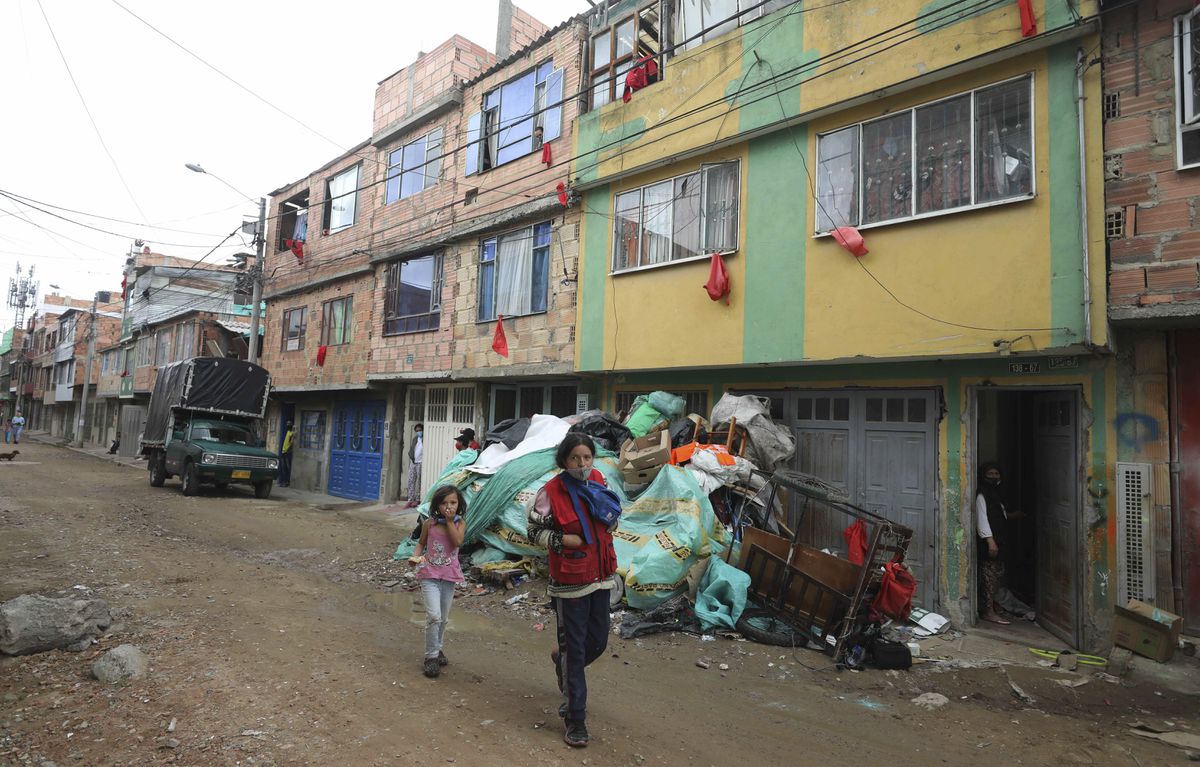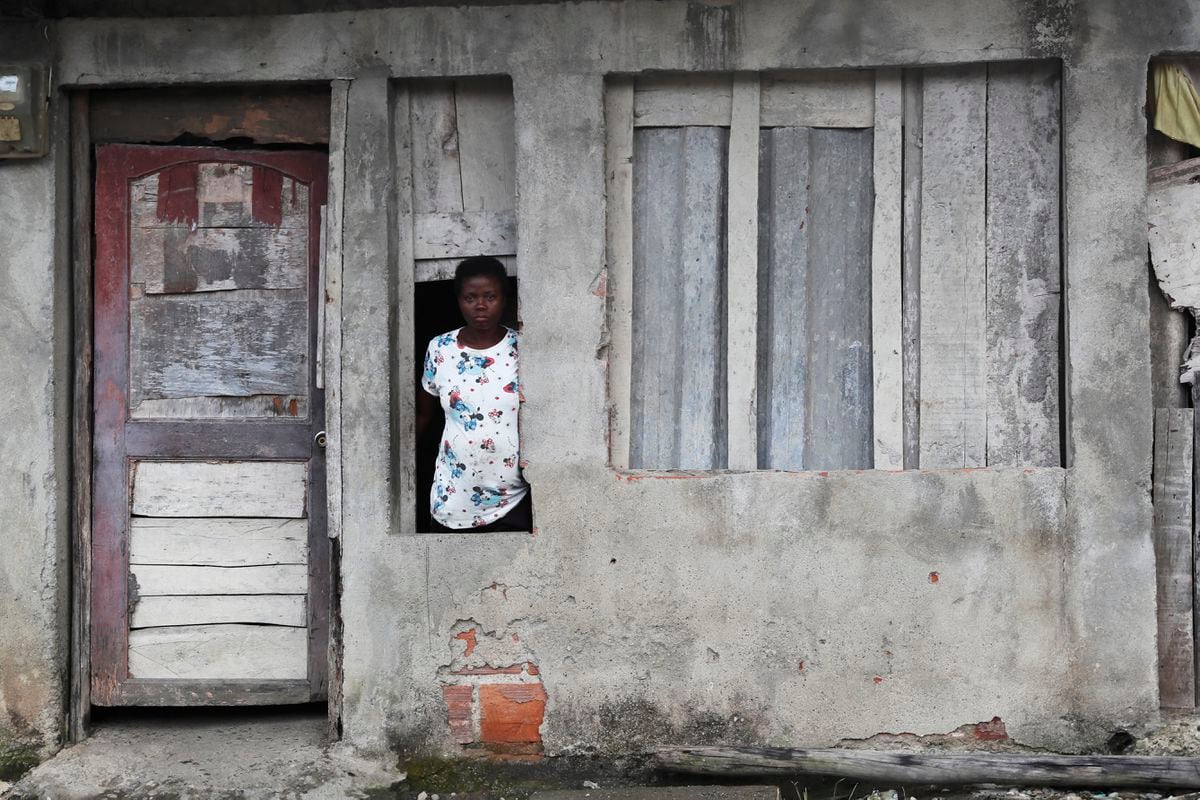Jesusita Moreno, Doña Tuta, social leader of the San Juan River in Chocó.Ramón Campos
Chocó is in mourning.
On the night of last Tuesday, June 7, two armed men entered the house of one of the children of the social leader Jesusita Moreno, in the La Floresta neighborhood of Cali, and shot her to death.
The murder occurred while celebrating a relative's birthday.
Doña Tuta, as her friends knew her, was 60 years old and had arrived in Cali two weeks ago to undergo a medical procedure.
Although the authorities captured the assassins, it is still not known with certainty who gave the order to kill her.
In recent weeks, the leader had denounced harassment and human rights violations by an army battalion in Chocó.
With Moreno, there are already 82 activists killed in 2022 and 1,309 since the signing of the peace agreement, more than one every two days.
Doña Tuta lived in Noanamá, a small town on the banks of the San Juan River, in the heart of the Chocó jungles, always abandoned by the State and a victim of the violent confrontation between the ELN, FARC and paramilitary guerrillas.
The inhabitants of the region, mostly from black and indigenous communities, have suffered for decades the consequences of being in the middle of the crossfire: massive displacements, murders, recruitment of minors and great poverty.
Tuta's house was for many in the region a place of shelter and protection in the midst of war.
Ramón Campos, a journalist who shared with her at different times in recent years, remembers that Doña Tuta was the life of the town, the heart of the San Juan River.
“These small villages in Chocó expand or contract depending on the coca or mining business.
Sometimes the town is full of people, then it is empty, but Tuta was always there, defending the rights of her people, ”says Campos by phone.
"In that whole area, Tuta was the one who organized the families, the one who received people from outside, the one who said where they could enter and where not."
Campos is still not used to Tuta's departure.
"The communities of the entire San Juan river knew her because the only health post in the area was in Noanamá and, sometimes, she attended him."
According to Campos, Tuta was one of the few people in the region who knew how to give injections.
She “she had some medical knowledge.
She knew, for example, how to treat malaria and malaria, which still affects many children in the region”.
In addition to her healing abilities, Tuta was loved and respected because she had bravely stood up to all the armed groups operating in the river's tributaries.
In recent years, she was the manager of an agreement not to attack civilians between the FARC's Arturo Ruiz mobile bloc, the ELN's western front, and the paramilitary structures of the Gaitanista Self-Defense Forces.
"Tuta managed to get the commanders of the three groups to sign a commitment to respect the urban centers, not to make camps less than a kilometer from the towns and not to recruit children," says Campos.
The writer Juan Miguel Álvarez, who had known her for a long time and was one of the first to publish the news of her death on social networks, recalls that Tuta was a highly respected woman within the community.
She “she was the leader of the leaders,” she says over the phone, “she had a lot of character, she spoke very slowly, very carefully.
She was a woman who didn't go around giving away smiles easily."
Álvarez explains that Ella Tuta was the oldest woman in community leadership in that region of the San Juan River.
I wake up with the news of Tuta's murder yesterday in the streets of Cali.
Tuta was a brave human rights defender from Medio San Juan.
She lived in Noanamá, a riverside town that has been devastated for years by the war between the ELN and an installation of the Armed Forces.
1/2 pic.twitter.com/Y2sBCqya04
– Juan Miguel Álvarez (@ chronicler77) June 8, 2022
Since the 1990s, Jesusita Moreno has stood out for her ability to generate consensus and resolve conflicts.
People believed her word.
For this reason, Alfredo Molano Bravo interviewed her on his program
De Ella Travesías
, which was broadcast on public television.
“Through the organization, we have learned to work together, between communities, between the two ethnic groups, indigenous and black,” Doña Tuta said in the video that journalist Campos rescued from the archives 20 years later.
Her wisdom was decades old.
With her murder, valuable reconciliation processes also die in the midst of war.
In the last year, Doña Tuta led the construction of a physical space in Noanamá to house hundreds of people displaced by the constant bombing of the river.
Juan Miguel Álvarez still does not assimilate the death of Doña Tuta.
Several times in the conversation he refers to her as if she were still alive.
"Tuta knows very well the properties of healing plants," she says and corrects herself: "I knew."
In the culture of the Colombian Pacific, this knowledge is very important because, since there are no doctors, people heal with herbs.
Álvarez explains that in Noanamá there is no electricity or aqueduct, the houses are made of wood and zinc, the streets are made of mud and many of its inhabitants are hungry and live in misery.
Under these circumstances, Doña Tuta was for many years the coordinator in the region of a project to bring drinking water filters to the poorest households.
Campos and Álvarez remember that in Tuta's house there was always cured viche, a kind of cane liquor with different herbs that passes through the throat as "gasoline" and that for centuries has served as an ancestral medicine for these Pacific communities.
“Tuta knew many legends from the oral tradition of the black communities of Chocó.
It was an impressive repository of information.
There are no old people like that anymore in that town,” recalls Campos.
After her murder, the General Community Council of San Juan (ACADESAN), to which Doña Tuta belonged, published a forceful statement rejecting the murder.
"This murder occurs in a context of humanitarian crisis that began a year ago, in which the civilian population has suffered confinement, murder, accidents with anti-personnel mines, recruitment and use of girls, boys, and young people, death threats, humiliations, abuses of power, and other aggressions against human dignity,” the statement concludes.
Subscribe here
to the EL PAÍS newsletter on Colombia and receive all the key information on the country's current affairs.



/cloudfront-eu-central-1.images.arcpublishing.com/prisa/STFOFHMRZ5BFZNSAFIXAIPB24I.jpg)

/cloudfront-eu-central-1.images.arcpublishing.com/prisa/F4LSK2ELHJHY3O7CGPILY5EUMA.jpg)


/cloudfront-eu-central-1.images.arcpublishing.com/prisa/X65E77YIKRHXLGGMF7JFVXG2XQ.jpg)
/cloudfront-eu-central-1.images.arcpublishing.com/prisa/NGWIXMWIJRGVVMUMCINKEFYGJU.jpg)